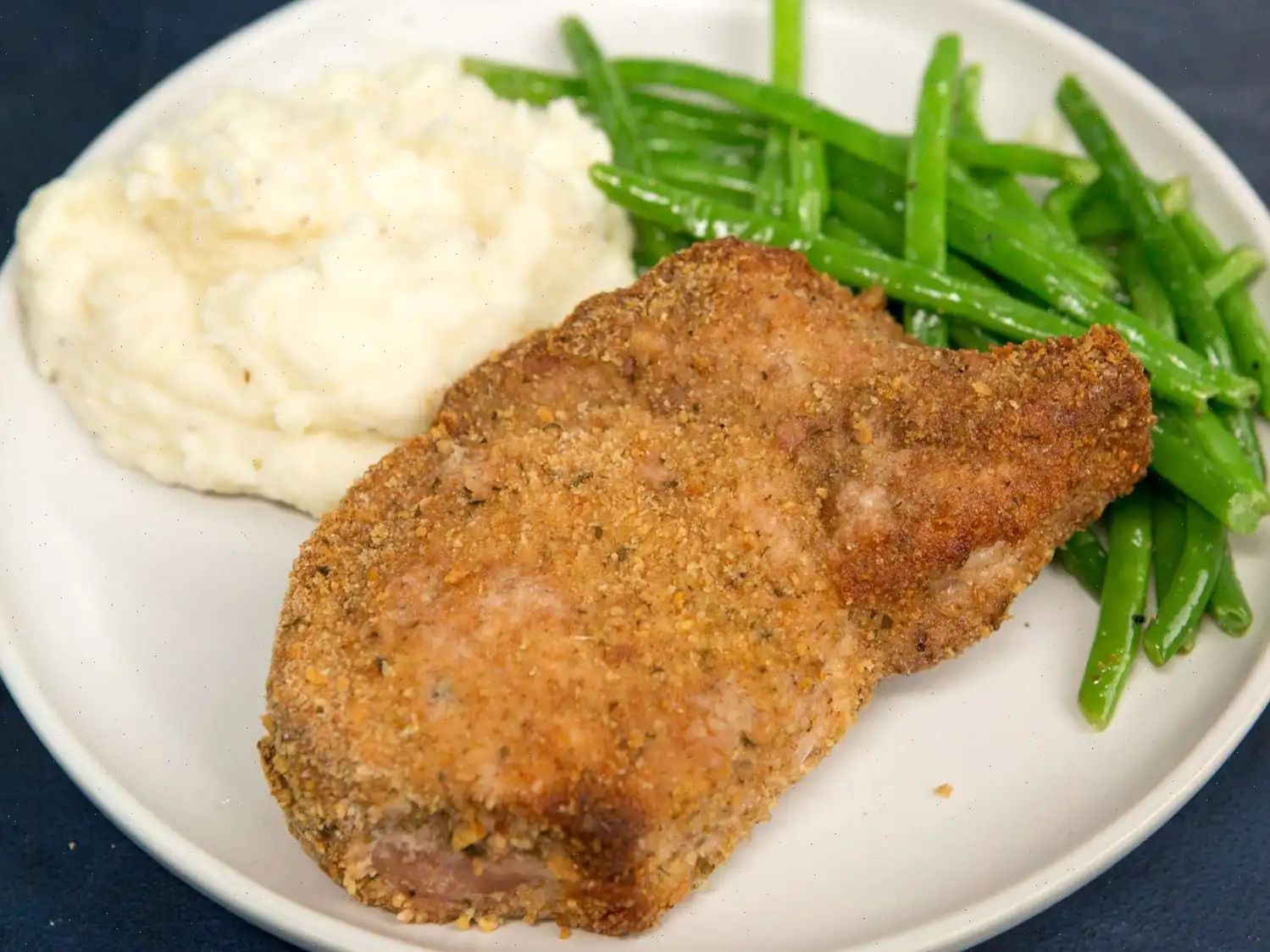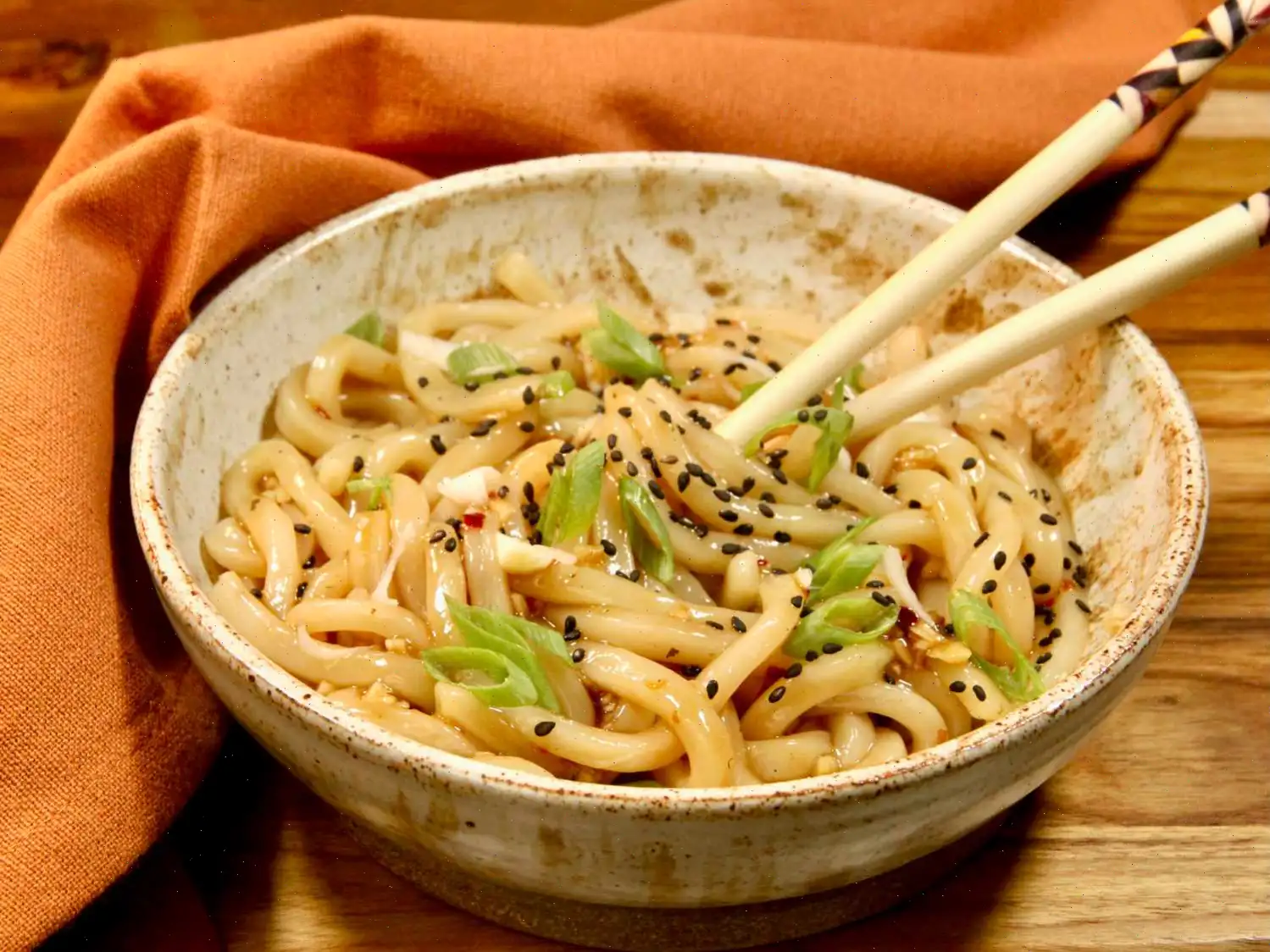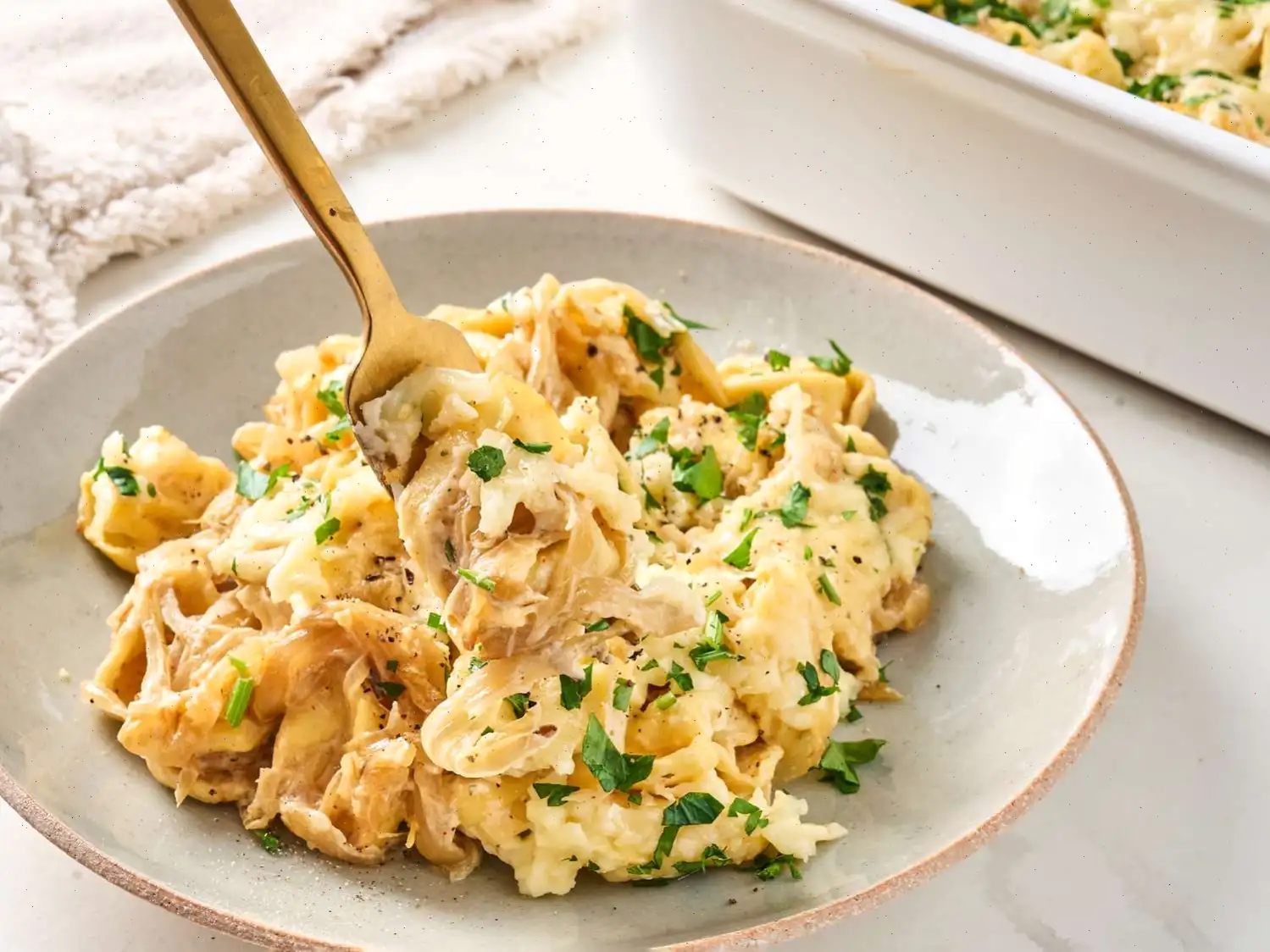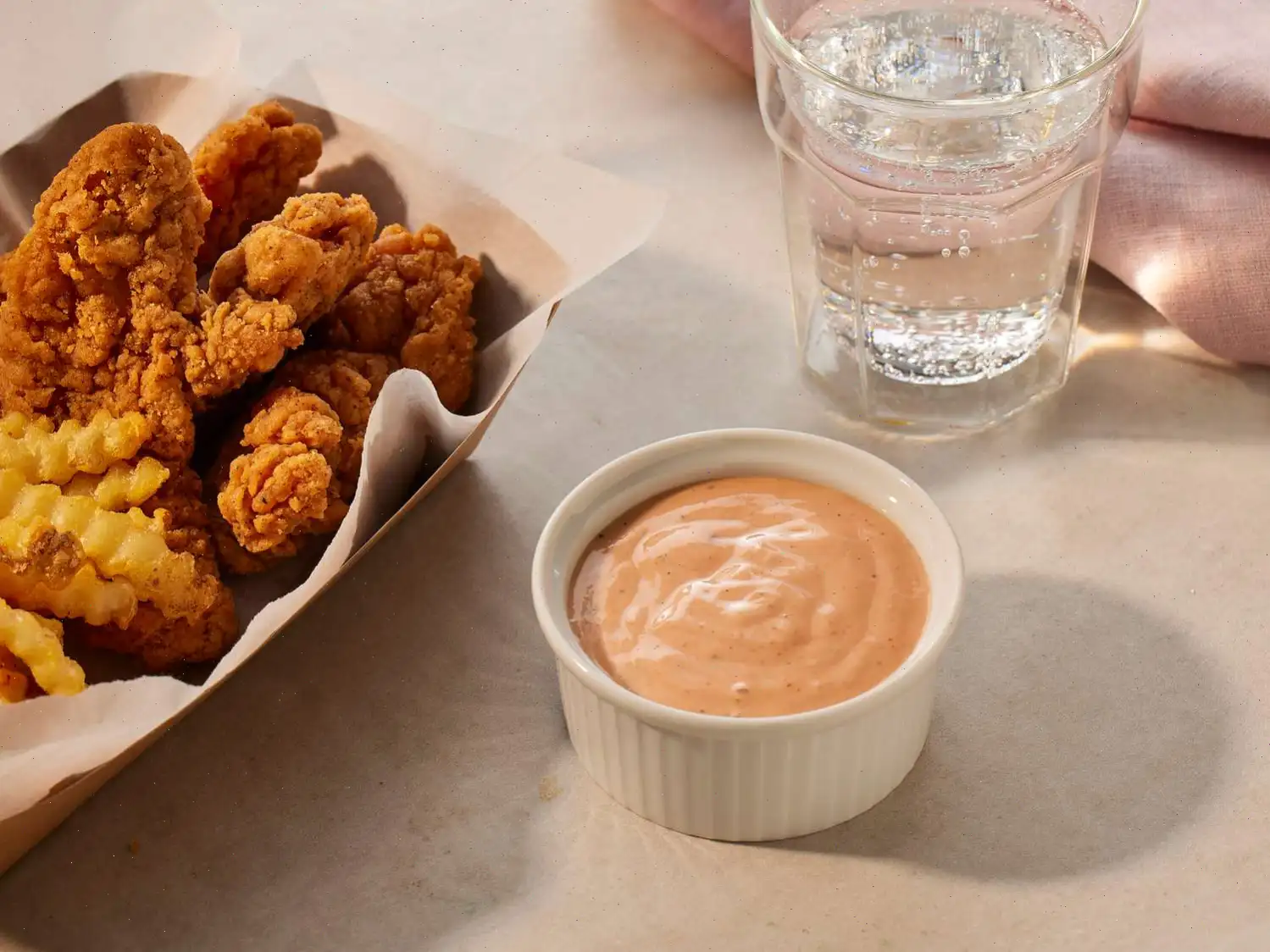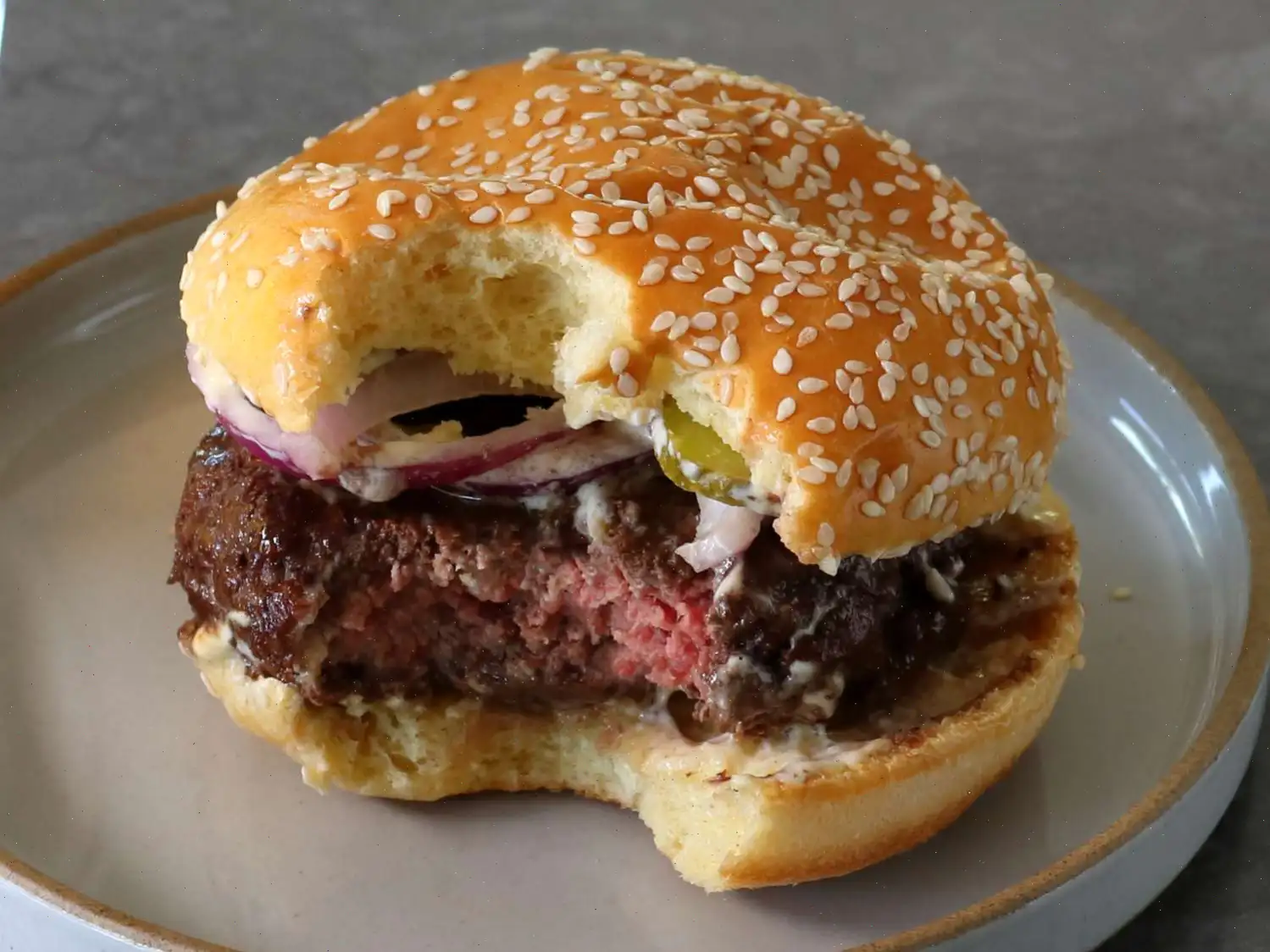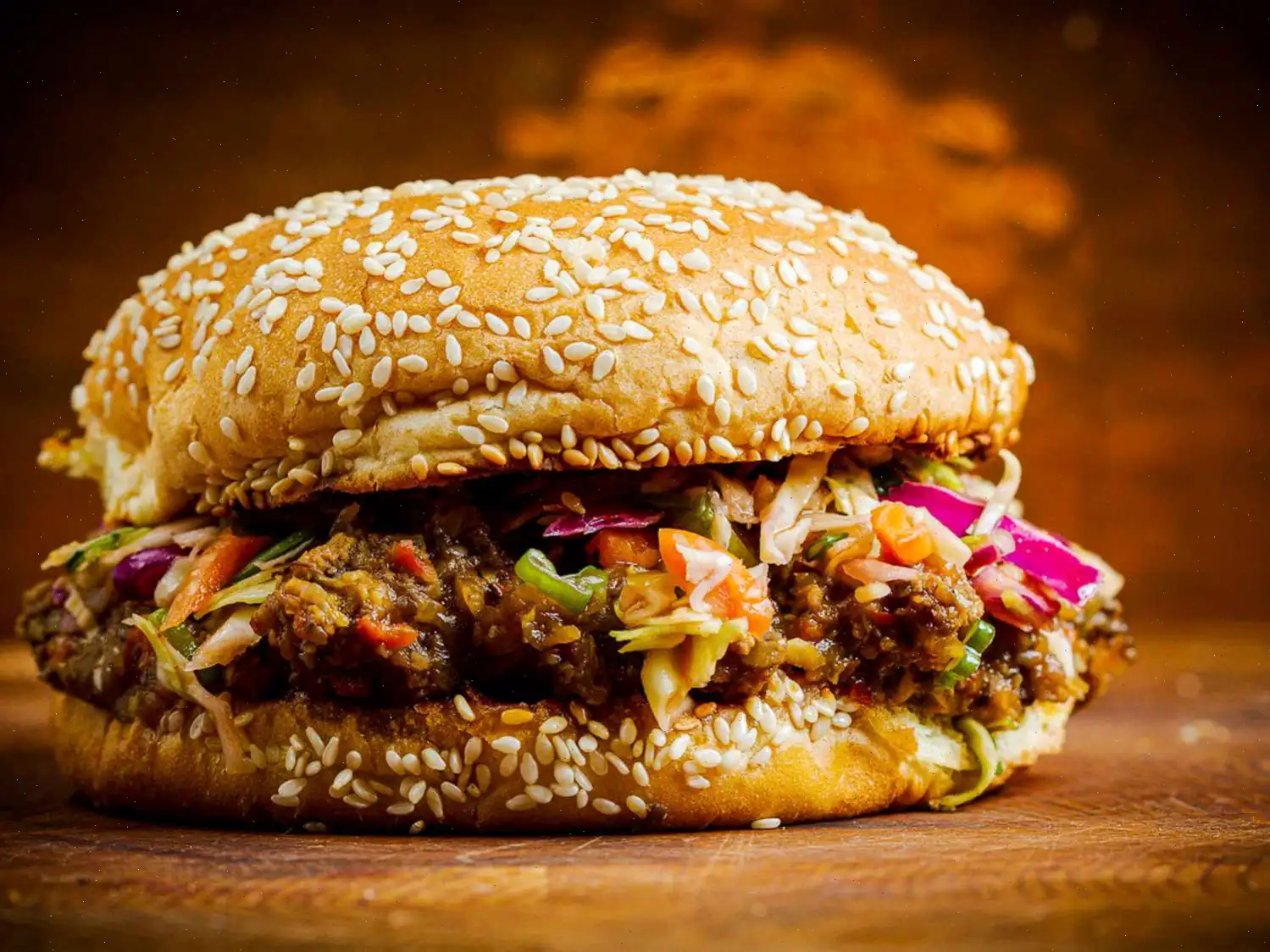
Receta de Filete Diane con Champiñones
Un tierno filete cubierto con una rica salsa de champiñones, el Steak Diane es un plato clásico que siempre impresiona. Esta receta de Steak Diane con champiñones lo lleva al siguiente nivel, añadiendo champiñones terrosos que le dan más sabor y profundidad al plato. Perfecto para una cena especial o una noche acogedora en casa, esta receta seguro se convertirá en una de tus favoritas.
Ingredientes
- 1/2 taza de caldo vegetal bajo en sodio
- 2 cucharadas de salsa de soja ligera
- 2 cucharaditas de mostaza Dijon o mostaza china
- 2 cucharaditas de pasta de miso blanco
- Un toque de hojuelas de chile rojo triturado
- 3 championes trompeta grandes (aproximadamente 450 gramos)
- 2 cucharadas de aceite vegetal para dorar
- 1 cucharadita de aceite vegetal para aromatizar
- 1 chalota, finamente picada
- 1/4 taza de sake o vino de arroz seco
- 1/2 taza de leche de coco sin endulzar
- Lentejas negras cocidas, para acompaar
- 2 cucharaditas de cebolln o cebollas verdes picadas para decorar
Instrucciones
- Preparar la mezcla de caldo: En un bol pequeo, combina el caldo vegetal, la salsa de soja, la mostaza, la pasta de miso y las hojuelas de chile rojo. Mezcla bien hasta que quede todo integrado y suave.
- Preparar los championes: Corta los championes a lo largo en mitades. Haz cortes diagonales poco profundos en la parte interior, asegurndote de no cortar completamente.
- Dorar los championes: Calienta 2 cucharadas de aceite en una sartn grande a fuego alto. Coloca las mitades de los championes con el lado cortado hacia abajo y deja dorar sin moverlos, durante unos 3-5 minutos, hasta que se forme una costra dorada.
- Cocinar los championes: Reduce el fuego a medio y vierte la mitad de la mezcla de caldo preparada. Cubre y deja cocinar a fuego lento hasta que el lquido se haya absorbido casi por completo y los championes estn tiernos, aproximadamente 5 minutos. Si es necesario, agrega un poco de agua para evitar que se sequen.
- Preparar la base aromtica: Retira los championes y reserva. Aade 1 cucharadita de aceite a la sartn y sofre la chalota picada durante 30 segundos, hasta que libere su fragancia.
- Agregar el sake: Vierte el sake en la sartn y cocina a fuego alto hasta que hierva suavemente. Remueve constantemente y deja reducir durante aproximadamente 1 minuto.
- Incorporar la leche de coco: Aade la leche de coco y el resto de la mezcla de caldo, junto con los jugos de los championes. Revuelve bien y cocina a fuego alto durante 2 minutos, hasta que la salsa espese ligeramente.
- Reintegrar los championes: Regresa los championes a la sartn y reduce el fuego a bajo. Cocina a fuego lento durante 2 minutos ms. Si la salsa est muy espesa, ajusta la consistencia agregando agua, 1 cucharada a la vez.
- Servir: Sirve los championes sobre una cama de lentejas negras cocidas. Cubre con la salsa de coco y espolvorea con cebolln o cebolla verde picada para decorar.
Informacin Nutricional por Porcin
- Caloras: 422
- Grasas totales: 19g (25% VD)
- Grasas saturadas: 3g (13% VD)
- Colesterol: 0mg (0% VD)
- Sodio: 656mg (29% VD)
- Carbohidratos: 44g (16% VD)
- Fibra: 15g (53% VD)
- Azcares: 11g
- Protenas: 17g (34% VD)
- Vitamina C: 15mg (17% VD)
- Calcio: 66mg (5% VD)
- Hierro: 8mg (46% VD)
- Potasio: 1414mg (30% VD)
Mushroom-Steak Diane es una reinterpretacin moderna y basada en plantas del clsico Steak Diane, un plato que se origin a mediados del siglo XX en Amrica y Europa. Originalmente, el Steak Diane era un plato de carne flamb que se serva directamente en la mesa en restaurantes elegantes, famoso por su salsa cremosa y rica a base de mostaza y brandy. La versin con championes trompeta real convierte el plato en una opcin vegetariana sin perder los sabores lujosos que hicieron famoso al original.
Variaciones Regionales e Influencias Culinarias
Aunque el Steak Diane tiene races en la alta cocina americana y francesa, la versin con championes se inspira en influencias internacionales ms amplias. Ingredientes como miso, sake y salsa de soja aportan una profundidad umami de inspiracin japonesa, mientras que la leche de coco aade un toque tropical y suave. Dependiendo de la regin, se pueden usar diferentes variedades de championes o ajustar los condimentos, creando versiones que van desde lo terroso y sabroso hasta lo ligeramente dulce y aromtico.
Qu lo Diferencia de Platos Similares
A diferencia de los salteados de championes tradicionales o los "steaks" genricos de hongos, el Mushroom-Steak Diane se distingue por su salsa compleja que combina miso, mostaza, soja y leche de coco. El cuidadoso marcado de los championes trompeta asegura una coccin uniforme y permite que absorban la salsa. Esta tcnica crea una textura que recuerda a la carne tierna, ofreciendo un perfil de sabor umami profundo y refinado.
Contextos Tpicos para Servirlo
El Mushroom-Steak Diane se sirve a menudo como plato principal elegante, ya sea en casa para una ocasin especial o en restaurantes veganos contemporneos. Combina perfectamente con lentejas, arroz o pur de patatas, y se adorna frecuentemente con hierbas frescas como cebollino o cebolleta para realzar tanto la presentacin como el sabor. En entornos de alta cocina, puede acompaarse con un vino ligero y fresco o un sake que complemente la riqueza de la salsa.
Datos Interesantes y Notas Culinarias
- El plato rinde homenaje a la preparacin teatral del Steak Diane original, incluso cuando se adapta para cocinas domsticas.
- Los championes trompeta se eligen por su textura carnosa, convirtindolos en un sustituto ideal de la carne en versiones vegetales.
- La pasta de miso no solo aporta umami, sino que enriquece la salsa con una sutil complejidad fermentada.
- Esta receta demuestra cmo la cocina europea tradicional puede fusionarse armoniosamente con ingredientes asiticos para crear un plato de inspiracin global.
- La tcnica de marcar los championes, aunque simple, mejora significativamente la absorcin de la salsa y la experiencia al comer.
Al combinar historia, adaptacin regional y tcnica cuidadosa, el Mushroom-Steak Diane demuestra cmo un plato clsico puede evolucionar sin perder sus races culinarias. Sus sabores ricos y en capas, junto con su textura tierna, lo convierten en una opcin destacada tanto para vegetarianos como para quienes buscan una cena elevada y sofisticada.
Puedes escuchar esta receta en formato de audio de IA. Simplemente haz clic en el botón de reproducción a continuación para escuchar el contenido en el formato que mejor te convenga. ¡Es una excelente manera de absorber información sobre la marcha!


